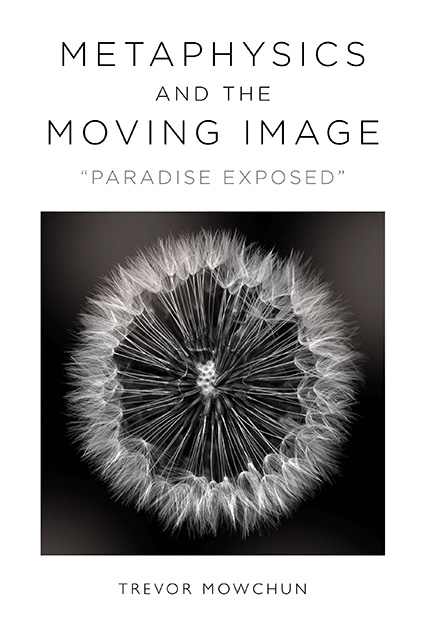Book contents
- Frontmatter
- Contents
- List of Figures
- Acknowledgments
- Introduction: The Death of God, the Birth of Film, and the New Metaphysics
- Chapter One Image Breakthrough: Disclosure and Derailment in Painting, Photography, and Film
- Chapter Two The Evolution of the Concept of “World” from Philosophy to Film
- Chapter Three Paradise Exposed: Psychic Automatism in Film Primer: “While the will is off its watch”
- Chapter Four Nature, Whose Death Shines a Light: Exteriority and Overexposure in The Thin Red Line
- Chapter Five “Mother, I am Dumb …”: The Reevaluation of Friedrich Nietzsche in The Turin Horse
- Notes
- Bibliography
- Index
Chapter Five - “Mother, I am Dumb …”: The Reevaluation of Friedrich Nietzsche in The Turin Horse
Published online by Cambridge University Press: 19 October 2023
- Frontmatter
- Contents
- List of Figures
- Acknowledgments
- Introduction: The Death of God, the Birth of Film, and the New Metaphysics
- Chapter One Image Breakthrough: Disclosure and Derailment in Painting, Photography, and Film
- Chapter Two The Evolution of the Concept of “World” from Philosophy to Film
- Chapter Three Paradise Exposed: Psychic Automatism in Film Primer: “While the will is off its watch”
- Chapter Four Nature, Whose Death Shines a Light: Exteriority and Overexposure in The Thin Red Line
- Chapter Five “Mother, I am Dumb …”: The Reevaluation of Friedrich Nietzsche in The Turin Horse
- Notes
- Bibliography
- Index
Summary
— We are conducting an experiment with truth! Perhaps mankind will perish because of it! Fine!
— Friedrich Nietzsche, The Will to PowerUnequivocal rejection of all philosophy is an attitude that always deserves respect, for it contains more of philosophy than it itself knows.
— Martin Heidegger, NietzscheBéla Tarr's most recent and, by his own admission, final film The Turin Horse (Hungary, 2011) returns us to the beginning of this book in Nietzsche's concept of the death of God, the end of metaphysics, and cinema's new metaphysics. The film declares itself to be following the trajectory of the horse whose abuse at the hands of a raging cabman made Nietzsche weep— these tears being a metaphor for an epic recantation not only of an entire philosophy but the way of life such a philosophy demands of its author: Nietzsche's way. Or so the story goes. It is one of the most famous stories in the history of Western philosophy, a seductive piece of apocrypha that few readers of Nietzsche can resist indulging. Of the handful of fictional films about Nietzsche's life, as far as I know, none of them, including Tarr’s, dares to dramatize the incident with the horse. But The Turin Horse stands as the only “Nietzsche film” committed to following the cabman, his horse, and the afterlife of this legendary turn of events in which Nietzsche's philosophy, particularly of the overman and will to power, came crashing down upon him. In taking this perspective Tarr seems to be asking why Nietzsche wept with pity when he believed, at least at the end, only in the honoring of power. Given that the film is set during what appears to be an apocalypse of total erasure, a preliminary answer in the form of an allegory is that a metaphysical force beyond human understanding is weeping, too, perhaps over life itself, life as power, or over a new and greater power, call it powerlessness … The film, however, is not conventionally philosophical enough to concretely ask or answer such questions. Its philosophy comes in taking the road less traveled, rejecting the rules of historical biography and cinema's biopic genre by portraying the horse instead of Nietzsche, animal as opposed to man, silence over speech.
- Type
- Chapter
- Information
- Metaphysics and the Moving Image'Paradise Exposed', pp. 211 - 230Publisher: Edinburgh University PressPrint publication year: 2023



